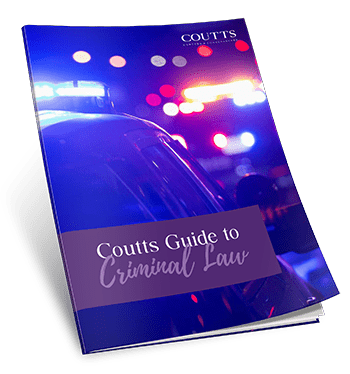We’ve Got You Covered
At Coutts, we offer specialised legal representation for individuals accused of Assault. Our team has a wealth of experience in dealing with various assault cases, ranging from minor altercations to serious bodily harm incidents. We recognise the complexities of assault law and are dedicated to robustly defending our client’s rights. Our approach is meticulous and client-focused, prioritising a thorough review of all evidence, strategic legal argumentation, and proactive defence planning to strive for the best possible resolution.

Luisa Gaetani
Partner
Book Your Assault Consultation Now
What is assault?
Assault has been defined as any act, and not a mere omission to act, by which a person intentionally or recklessly causes another to apprehend immediate and unlawful violence (R v Ireland [1998] 1 AC 147). Assault may or may not include physical contact, and physical contact need not necessarily be present to prove the offence of assault (The Queen v Phillips (1971) 45 ALJR 467).
There are various types of assault offences that you may be charged with. The most common assault offences include:
- Common assault
- Assault of police
- Assault occasioning actual bodily harm
- Intentionally/recklessly cause grievous bodily harm
What must you prove for assault?
To secure a conviction for common assault, the prosecution must prove the following elements beyond reasonable doubt:
- An act by the accused that intentionally, or recklessly, causes another person (the complainant) to apprehend immediate and unlawful violence.
- That such conduct of the accused was without the consent of the complainant.
- That such conduct was intentional or reckless in the sense that the accused realised that the complainant might fear that the complainant would then and there be subject to immediate and unlawful violence and nonetheless went on and took that risk.
- That such conduct be without lawful excuse.
What to do if you have been charged with assault?
If you have been charged with assault, there may be a defence available to you, including:
- Self-defence;
- Necessity;
- Duress; or
If you have been charged with assault, it is important to obtain professional legal advice as soon as possible.
What to Expect with Coutts Lawyers
Step 1: Initial Contact
Reach out to Coutts Lawyers via our website, phone, or in person. Briefly describe your matter.
Step 2: Consultation Appointment
Schedule and attend a meeting with a Coutts lawyer to discuss the specifics of your matter and desired outcomes.
Step 3: Information & Legal Advice
Share all related documents and information. Your lawyer will review everything, clarify aspects as needed, and then advise on the best action course.
Step 4: Action Plan Development
Based on the advice, an appropriate action plan will be formulated. This may involve communication, documentation processes, or further legal steps.
Step 5: Implementation
Execute the action plan, addressing a range of legal scenarios as necessary.
Step 6: Resolution & Closure
Navigate towards a resolution, with the path determined by the nature of the matter. Your Lawyer will outline any final actions or considerations.
Book Your Assault Consultation Now
Introducing Luisa
Your Compassionate Lawyer
Meet Luisa, a Partner at Coutts Lawyers & Conveyancers, and an Accredited Family Law specialist. Luisa is the head of our esteemed Family Law & Criminal Team. Boasting over a decade of expertise, Luisa blends sensitivity with practicality, forging deep connections and trust with her clients. Her reputation as a foremost authority in Criminal and Family law is well-deserved.


Connect with Luisa Today
Multi Award-Winning
Law Firm

Assault FAQ’s
Conviction for an assault charge can result in severe consequences, including imprisonment, probation, fines, community service, imprisonment and a permanent criminal record, which can affect employment and other life opportunities.
No, once a charge is made, the decision to proceed with or drop the charge is typically in the hands of the prosecutor or the state, not the victim. The victim may express a wish not to proceed, but the final decision rests with legal authorities.
Yes, self-defence can still be claimed even if you struck first, provided it can be proven that there was a genuine belief of imminent harm, and the force used was reasonable and proportionate to the perceived threat.
Establishing duress involves proving that the accused was compelled to act due to threats, violence, constraints, or other forms of pressure, making them reasonably believe they had no alternative but to commit the assault. It requires substantiating evidence and credible legal arguments.
Common assault involves causing someone to fear immediate and unlawful violence without necessarily inflicting physical harm. In contrast, assault occasioning actual bodily harm involves causing physical injuries to the victim, which are more than merely transient or trifling.
Download your FREE Criminal Law Guide!



